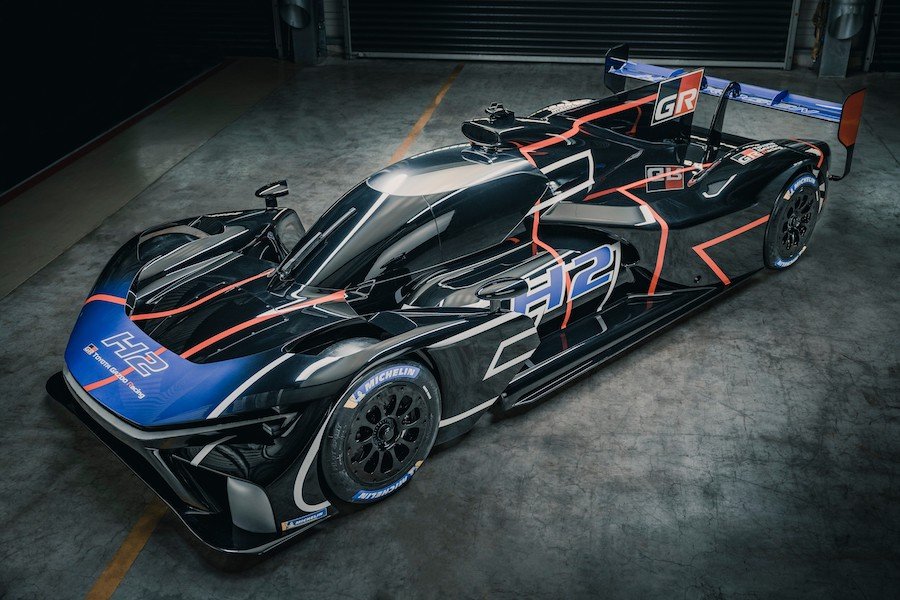Toyota Reveals Future Hydrogen-Powered Le Mans Contender, the GR H2 Racing Concept

This should come as little to no surprise, considering Toyota is one of the biggest proponents of hydrogen vehicles and one with a racing heritage. The Japanese automaker has previously fielded cars in the Prototype (LMP1) and Hypercar (LMH) categories of Le Mans. Now, Toyota is naturally looking toward the future, as it's the first automotive giant to show strong interest in the WEC's hydrogen class, which is set for a 2026 debut.
On top of that, Toyota has prior experience with racing a hydrogen-engine Corolla in the Super Taikyu Series and the IDEMITSU 1500 SUPER ENDURANCE 2022. This shows commitment to the introduction of more sustainable fuels in motorsport. That meant the Japanese carmaker had the chance to learn and develop its technologies based on actual experience in motorsport.
Sadly, technical specifications relating to the GR H2 Racing Concept are sparse. So far, all we know is that it will have a hydrogen-hybrid powertrain, a length of 5,100 mm (201 in), and a width of 2,050 mm (80.7 in). The silver lining here is that the prototype will be displayed at ACO's "H2 Village" at the venue of Le Mans during the race.
As a result, Toyota is eager to embrace this opportunity to showcase what it has learned so far and encourage competitors to consider this exciting new option. According to Akio Toyoda, there's more to hydrogen than meets the eye.
Obviously, the main advantage is steering motorsport toward a more carbon-neutral direction, which could trickle down to our road cars. This is one of Toyota's goals, as the company is pursuing multiple avenues toward developing a carbon-neutral society, including battery electric vehicles.
But there's also the fact that hydrogen could be the solution fans are looking for. The one that would keep the same excitement and performance we previously enjoyed. Toyoda pointed out that this option would allow us to enjoy the sound, torque, and dynamics we have fallen in love with.
On top of that, Toyota's chairman also mentioned one critical advantage hydrogen holds over traditional gas engines. That edge is related to hydrogen being lighter than gasoline, with weight being a massive factor in racecars.
Lastly, this strong interest Toyota shows in using hydrogen in motorsports also has to do with Toyoda's confidence in the technology. Toyota's chairman believes this technology could win races, stating the company would not invest in it otherwise. And he likely knows what he's talking about, having sat behind the wheel of a few racecars before, including testing a hydrogen-powered GR Yaris at a WRC stage. Overall, this is exciting news coming from Toyota, giving old-school motorsport fans a reason to look forward to the future of racing.
Related News


